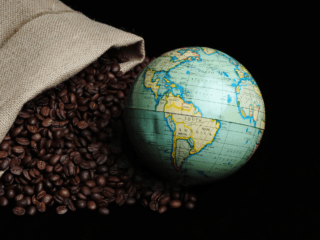Coffee or Tea – Is Coffee Now the Nation’s Favourite?
The debate over whether coffee or tea is the nation’s favourite drink in Britain has been ongoing for some time. With the increased availability of coffee shops and the growing popularity of specialty coffee drinks, it’s no wonder that coffee has gained considerable traction in recent years.
While tea still holds a cherished place in many British households, it’s fair to ask if coffee has surpassed tea as the nation’s favorite. In this blog post, we’ll explore the facts and figures behind the coffee vs tea debate in Britain
A Brief History of Tea and Coffee in Britain
Tea and coffee have both played significant roles in British history, each leaving their unique mark on the nation’s culture and daily life. Tea, originating from China, was first introduced to Britain in the 17th century and quickly became a popular drink among the elite. Its status and importance continued to grow, leading to the infamous Boston Tea Party and the rise of the British East India Company. Tea became a symbol of British identity, with afternoon tea becoming a beloved tradition.
On the other hand, coffee didn’t make its way to Britain until the 17th century, brought by travelers returning from the Middle East. Initially seen as a curiosity, coffee gained popularity in the coffeehouses of London. These coffeehouses became important meeting places for intellectuals, artists, and businessmen, fostering lively discussions and the exchange of ideas.
In the 18th century, tea became more accessible to the general population as prices dropped and imports increased. Tea became an integral part of daily life, enjoyed by people from all walks of life. However, coffee continued to flourish in the coffeehouses, providing a distinct social space for people to gather, debate, and share ideas.
Throughout the centuries, tea and coffee have coexisted in British society, each holding its own significance. While tea remains deeply ingrained in British tradition, the rise of coffee culture and the popularity of specialty coffee drinks have brought coffee to the forefront in recent years. The ongoing debate between tea and coffee as the nation’s favorite drink continues to fuel discussions and divide opinions across the country.
The Rise of Coffee Culture in Britain
Over the past few decades, there has been a remarkable rise in coffee culture across Britain. Coffee shops have become an integral part of the social fabric, offering a cozy and welcoming space for people to gather, relax, and enjoy their favorite brew. The emergence of specialty coffee drinks, such as lattes, cappuccinos, and flat whites, has contributed to this coffee revolution, providing consumers with a wide range of options to satisfy their taste buds.

One of the driving forces behind the rise of coffee culture is the increasing desire for quality and artisanal products. Coffee aficionados are no longer content with a simple cup of instant coffee; they crave a more immersive and indulgent experience. This has led to a surge in independent coffee shops, roasters, and baristas who are passionate about sourcing the finest beans and crafting the perfect cup of coffee.
Furthermore, the growth of coffee culture has been greatly influenced by changing consumer lifestyles and preferences. In our fast-paced society, coffee has become more than just a drink; it has become a symbol of convenience, productivity, and relaxation. The popularity of takeaway coffee, coffee pods, and home brewing methods has made coffee accessible to people on the go, allowing them to enjoy their favorite brew wherever they may be.
The rise of coffee culture in Britain has also been driven by the power of social media. Instagrammable coffee creations and latte art have become viral sensations, with coffee shops and consumers alike sharing their coffee experiences online. This has created a sense of community and excitement around coffee, attracting even more people to join the coffee culture movement.
Overall, the rise of coffee culture in Britain is a reflection of changing consumer tastes, a desire for quality and artisanal products, and the influence of social media. While tea will always hold a special place in British hearts, it’s clear that coffee has become a firm favorite among many.
The Decline of Tea Consumption in Britain
In recent years, there has been a noticeable decline in tea consumption in Britain. While tea has long been considered a staple in British households, its popularity has been overshadowed by the rise of coffee culture and the growing preference for specialty coffee drinks.
One factor contributing to the decline of tea consumption is the changing lifestyles and preferences of consumers. In our fast-paced society, people are seeking convenience and efficiency, and coffee offers a quick and easily accessible option. Additionally, the popularity of takeaway coffee and home brewing methods has made it more convenient for people to enjoy their favourite coffee on the go.
Another factor is the influence of social media and the power of trends. Coffee has become a trendy and Instagrammable beverage, with unique latte art and coffee creations taking over social media platforms. This has created a sense of excitement and allure around coffee, attracting more people to try it and ultimately shifting their preferences away from tea.
Furthermore, the growth of coffee culture has been driven by the desire for quality and artisanal products. Coffee lovers are increasingly seeking out specialty coffee shops and baristas who can provide them with a personalized and indulgent coffee experience. The emphasis on quality and craftsmanship has elevated coffee to a new level, making it more appealing to consumers.
While tea will always hold a special place in British hearts, it’s clear that coffee has gained considerable traction in recent years, leading to a decline in tea consumption. The ongoing debate over coffee vs tea as the nation’s favorite drink continues to divide opinions, but it’s undeniable that coffee has become a firm favorite among many in Britain.
Factors Contributing to the Popularity of Coffee in Britain
Over the past few decades, coffee has experienced a remarkable rise in popularity in Britain. This can be attributed to a variety of factors that have contributed to the growth of coffee culture and the increasing preference for coffee over tea.
One key factor is the evolving tastes and preferences of consumers. As the demand for quality and artisanal products has grown, coffee has emerged as the drink of choice for those seeking a more immersive and indulgent experience. The availability of specialty coffee drinks, such as lattes, cappuccinos, and flat whites, has also played a significant role in attracting consumers to the coffee culture movement.
Another factor is the influence of social media. The power of trends and the desire to share experiences online have created a sense of excitement and community around coffee. Instagrammable coffee creations and latte art have become viral sensations, enticing even more people to join the coffee culture and try unique and visually appealing coffee drinks.
Furthermore, the convenience and accessibility of coffee have played a part in its popularity. In our fast-paced society, people are looking for quick and easily accessible options, and coffee fits the bill perfectly. Takeaway coffee and home brewing methods have made it more convenient than ever to enjoy a cup of coffee on the go.
The Debate Over Which is the Nation’s Favorite Drink
The debate over whether coffee or tea is the nation’s favorite drink in Britain is a topic that sparks lively discussions and divides opinions across the country. While tea has long held a cherished place in British households and remains deeply ingrained in tradition, coffee has gained considerable traction in recent years, thanks to the rise of coffee culture and the popularity of specialty coffee drinks.
Coffee has become more than just a beverage; it has become a symbol of convenience, productivity, and relaxation in our fast-paced society. The emergence of cozy coffee shops and the availability of artisanal coffee drinks have made coffee a favorite among many. On the other hand, tea lovers still appreciate the rich history and comforting nature of a cup of tea.
Ultimately, whether coffee or tea is the nation’s favourite drink in Britain is subjective and dependent on personal preferences. Some may argue that the rise of coffee culture and the decline in tea consumption indicate a shift in preferences, while others may assert that tea’s enduring popularity and cultural significance make it the rightful favourite.
In the end, what matters most is that both coffee and tea have their place in British culture, and individuals can choose their favorite drink based on their own taste and preferences. So, whether you’re a coffee enthusiast or a devoted tea drinker, there’s no denying the wide range of choices and experiences that both beverages offer.
About the Author
This article was written by the team at CoffeeCode, your go-to coffee blog with a focus on inspirational design, and sustainability.




